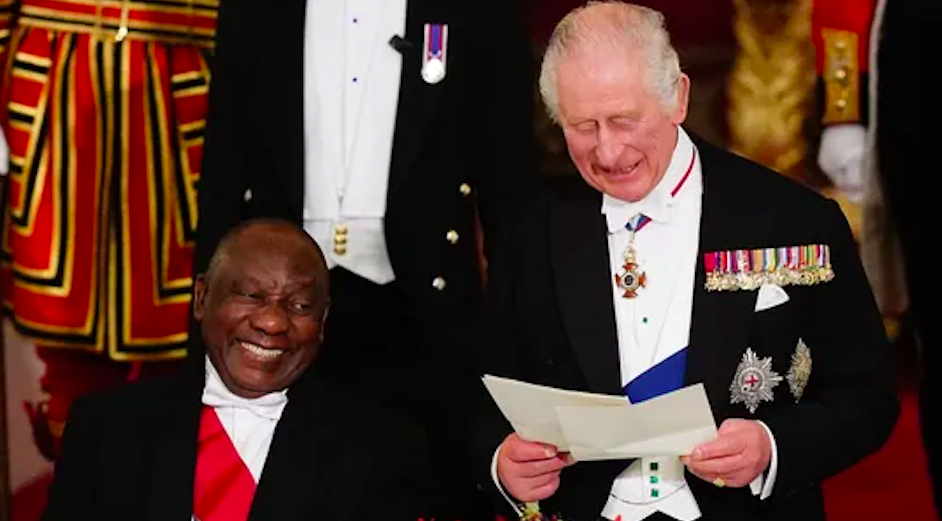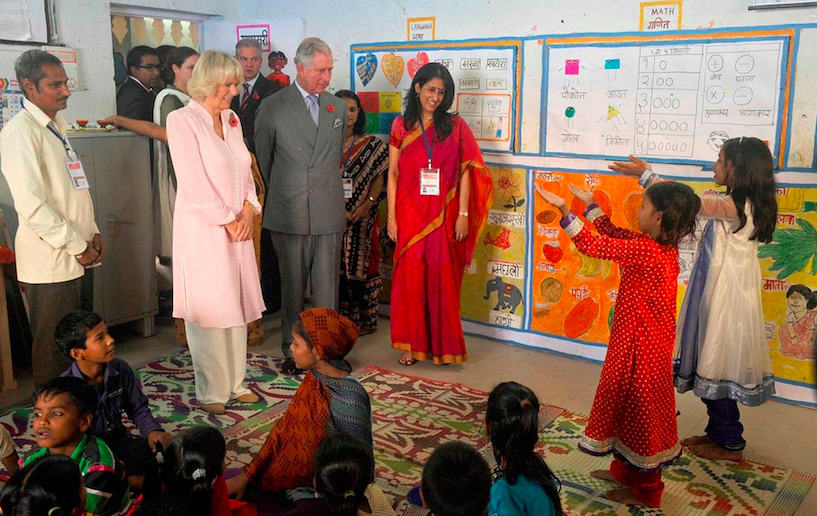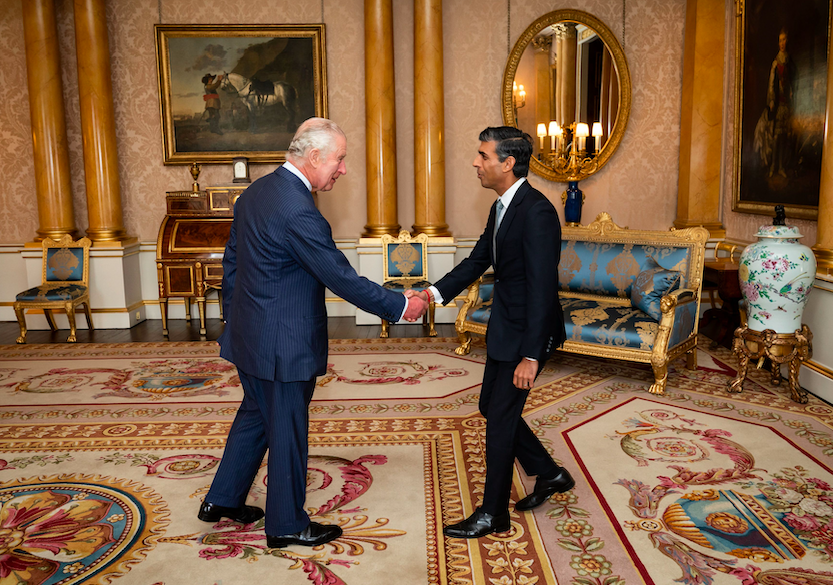Sunday Morning / May 7, 2023
Charles III processed up the aisle at Westminster Abbey on Saturday to clench the orb and scepter of a 1200 year old English monarchy. Moreover, he was crowned the Supreme Governor of the Church of England, where, incidentally, he couldn’t even marry in 2005.
As divorcees, Charles and longtime companion Camilla Parker Bowels were not permitted to remarry in the church during their ex’s lifetime. Though a new provision in 2002 enabled them to consider doing so under “extraordinary circumstances,” they opted instead for a civil ceremony at the Windsor Guildhall joining the gallows of single, gay, divorced and biracial Britons marginalized by the Anglican Church for nearly 500 years.
While the coronation of Charles III and his Queen Consort was shorter, less expensive, and more inclusive of different faiths and community groups than any before it, representing both Anglicans and a public they exclude presents a confounding challenge for king and country.Church of England
The Church of England took shape in 1534 when King Henry VIII renounced papal authority. The UK Parliament governed its affairs through 1919, after which it devolved into a National Assembly and General Synod in 1970. Today, the Synod not only constructs legislation concerning the church, but has the power to repeal or amend acts of parliament concerning the church. By rights, it is the single most autonomous and powerful counterpart of the UK parliament.
Shortly after Charles III ascended the throne, the Church of England quickly published a landmark report in February 2023 that revealed a new approach to sexuality, sexual identity, heteronormative relationships and marriage. After many hours of debate, Synod voted in favor of the following motion:
We lament and repent of the failure of the Church to be welcoming to LGBTQI+ people, and the harm that LGBTQI+ people have experienced and continue to experience in the life of the Church. We recommit to our shared witness to God’s love in relation to identity, sexuality, relationships and marriage.
Collectively, the Archbishops of Canterbury and York acknowledged that “family life in the 21st century is fluid and diverse,” in their report called “Love Matters.”Love Matters
While Marriage Equality became legal in the UK in 2014, the Church of England voted on Thursday to offer blessings to same-sex couples. Nearly a decade on, the compromise of acceptance came at a meeting of the General Synod later described conversely by various clergy as a “breakthrough, flawed compromise, and outright mistake.”
While same-sex couples are prohibited to marry in the church, they can now "come to church after a civil marriage or civil partnership to give thanks, dedicate their relationship to God, and receive God's blessing,” the report read. Similarly to Prince Charles and Camilla Parker Bowles in 2005.
While the divine seems to be softening to social norms, They, as the case may be, (the church is considering granting God a gender neutral pronoun) must reconcile with the diversity of its members, both within the UK and beyond.
"The Church continues to have deep differences," the Archbishop of Canterbury and York said in a joint statement, "which go to the heart of our human identity."Cultural Divide
By clearing the way to bless same-sex marriage, the Church of England could soon see "racial injustice, disunity and racial segregation" says Busola Sodeinde, a church commissioner in London.
The Synod's decision could lead to an exodus of churches in Africa and Asia, where views of same-sex unions are very different from prevailing opinions in the West. Church leaders are trying to square the UK’s same-sex marriage laws to the larger Anglican Continuum whereupon Charles III presides worldwide. Same-sex marriage is legal in 8 of 14 British Overseas Territories.
But unlike 1607, when Captain John Smith established a colony at Jamestown, Virginia, the first permanent English settlement in North America, modern Britain is reluctant to commandeer or silence their Commonwealth nations and the global Anglican community's vastly different cultural views.

AP
In his first major speech ahead of a state banquet at Buckingham Palace, Charles III delivered an address to his guest of honor, South African president Cyril Ramaphosa:
While there are elements of that history which provoke profound sorrow, it is essential that we seek to understand them. We must acknowledge the wrongs which have shaped our past if we are to unlock the power of our common future.
The Synod reflects on Thursday's vote."For the first time, the Church of England will publicly, unreservedly, and joyfully welcome all couples in church," Archbishops Welby and Cottrell said. They're calling it a new beginning.Protector of Faiths
It was first bestowed by Pope Leo X upon King Henry VIII.
The subsidiary title was conferred in recognition of Henry's "Assertio Septem Sacramentorum” (Defense of the Seven Sacraments), which defended the sacramental nature of marriage and the supremacy of the pope. But while Henry was drinking the Kool-aid, Martin Luther’s “Disputation on the Power of Indulgences” was invoking people all over Europe to reconsider Catholicism. In particular, Luther's “95 Theses” challenged the Catholic Indulgence System; requiring all parishioners to purchase a certificate of pardon for the punishment of their sins.
Luther rejected the practice of financially buying or paying for forgiveness, suggesting instead that salvation was a gift or consequence of faith. Henry VIII challenged papal authority to create the Church of England, and in 1543 Parliament agreed conferring "The Bill for the Kinges Stile” on Henry VIII and his successors, Defenders of the new (Anglican) faith.
Today, Charles III oversees 38 different churches in the Anglican Communion with 85 million members; Pope Francis 1.3 billion Catholic parishioners around the globe. Both are defenders of their faith in every nation of the world.Justice & Mercy
Buddhist, Hindu, Jewish, Muslim and Sikh leaders all took part in the spectacle of the coronation which today reflects a contemporary society. There were even female bishops for the first time, and the Abbey’s 2000 guests all prayed in their native languages. But the cameras were flipped off when Charles III swore an oath to uphold the law and the Church. Under a canopy of golden cloth held over the monarch's head, he was anointed with holy oil, invested with regalia, and crowned. Behind a curtain the Archbishop asked, "Will you to your power cause Law and Justice in Mercy to be executed in all your judgements?" The King replied, “I will!”
Queen Elizabeth once said her role was “not to defend Anglicanism to the exclusion of other religions. Instead, the Church of England has a duty to protect the free practice of all faiths in this country.” Charles adds,
I mind about the inclusion of other people’s faiths and their freedom to worship in this country. It’s always seemed to me that while at the same time being Defender of the Faith, you can also be the 'Protector of Faiths.'
In fact, Charles III went on to rewrite the coronation oath with a remarkable preface: "The Church of England will seek to foster an environment where people of all faiths and beliefs may live freely.” Prime Minister Rishi Sunak, Britain’s first Hindu leader, even read aloud from the Bible; demonstrating for the nation, perhaps even the world that diversity is the act of thinking independently — together.
“We have an amazing opportunity to reimagine a diverse society in which all families and loving relationships are valued and strengthened,” the report "Love Matters" concludes. “Promoting the stability that enables us all to thrive in a variety of family constellations.”

AP
Charles III and his new Queen Consort whom he calls ’Mehbooba' (Urdu for darling) recently undertook their 10th royal engagement to a former British colony to discuss climate change, sustainability, and social finance initiatives. In particular, they launched a new 10-million-dollar Development Impact Bond (DIB) to help improve education for over 200,000 children in India.
In an impromptu performance at a primary school in New Delhi, two girls, age seven, sang to the new king. “Will you build us a fort?”
Charles exclaimed, “I will!”








